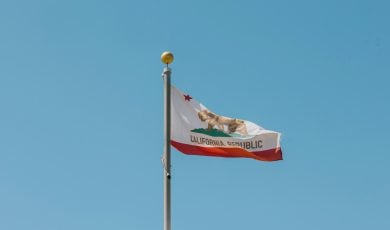Tribal attorneys are preparing Arizona tribal leaders for the coming discussion on legalizing online casino in the Grand Canyon State. The tribes are interested in the prospect, but aren’t yet ready to enter formal negotiations. Moreover, they will want to secure a better deal for iGaming than they did for Arizona sports betting.
The Arizona Indian Gaming Association Expo last month featured a panel titled “Sports Betting to iGaming: Navigating the Future of Indian Gaming.”
Scott Crowell and Stephen Hart, two attorneys with experience representing tribes in Arizona, were joined on the panel by Paula Hart, director of the Indian Affairs Office at the US Department of Interior.
PlayUSA spoke with Crowell and Hart to get their thoughts on the panel and impressions on where Arizona tribes stand with iGaming.
Hart explained that any talks among tribes about Arizona online casino are in their infancy.
I think we can safely say that there’s nothing imminent. I think we can also safely say that there is interest, particularly because of the West Flagler case, and tribes are trying to sort out what that means and what their next steps can be.
Arizona Indian Gaming Association Panel on Online Casino
The panel emphasized the legal considerations tribes must navigate when expanding into iGaming, including potential federal review of any tribal-state compact amendment.
Panelists provided Arizona tribal leaders with an overview of regulated online casino gaming in the US with a particular focus on tribal involvement.
While agreeing that Arizona tribes are just beginning to talk about the potential of online casino, Crowell believes the panel will help get those talks moving.
I think it will help jumpstart discussions on how to best approach iGaming, understanding that it’s more a question of when than if it comes to Arizona.
Crowell highlighted recent developments with federal courts upholding the Seminole Tribe of Florida’s online gaming model under IGRA in the West Flagler case. In a corresponding move, the Department of Interior provided guidelines for tribes to offer statewide online gaming through tribal-state compacts.
Those changes provide Arizona tribes with the opportunity to seek a more appealing online casino framework than what they accepted for online sports betting.
“The Seminole model I think gives them a mechanism to maintain their tribal exclusivity of casino-style games, whether that be brick and mortar or online,” Crowell said.
Hart concentrated his comments on how Michigan tribes faired with online casino under a commercial agreement with the state.
“I was trying to provide an example for people of other tribes that have gone forward with this, and I would say quite successfully. Michigan is a somewhat parallel state with 10 million people compared to almost eight million here.”
Opportunity to do better than online sports betting
In 2021, Arizona tribes agreed to share sports betting with professional sports teams. Ten tribes and 10 teams each got access to sports betting licenses. However, when major online sports betting operators all partnered with teams, it left tribes with about 5% of the sports betting market.
“Certainly, I think most Arizona tribes have remorse over the way the sports wagering agreements played out,” Crowell said. “Tribes got half of the licenses but a very small portion of the revenue.’
Hart helped negotiate the 2021 Arizona gaming expansion on behalf of Navajo Nation Gaming Enterprise. Although online sports betting has not been a successful venture for Arizona tribes, Hart said the overall gaming expansion included with it has been a boon for tribes.
Tribes knew they were allowing outside interests into the market to offer online sports betting. But in return, they received additional slot machines, table games and brick-and-mortar gaming operations.
“The compacts for tribes in Arizona were very good, particularly for those tribes with access to big urban markets. The growth that occurred as a result has been extraordinary,” Hart said. “I think it was a difficult choice for leadership to make. Should they walk away from the compact and five years of work or should they make an agreement which, in some respect, impacted their exclusivity.”
More discussions on Arizona online casino to come
The 22 Arizona tribes haven’t yet reached the point of holding formal meetings to discuss a potential framework for Arizona online casinos. And they might not begin doing so in 2025.
However, Crowell got the impression that Arizona tribes have interest in bringing casino gaming online.
“There were a number of conversations in the hallways afterward indicating the issue is on everybody’s radar,” Crowell said. “They understand there’s a way to do iGaming while avoiding the mistakes made in the sports wagering arrangements. Where it goes from here, I don’t know. I know the tribal leaders are talking to each other about iGaming, but I’m unaware of any formal process that has been established.”
Crowell does think that Arizona tribes eventually will get together to come up with a plan to establish iGaming exclusivity.
Arizona tribes have a proven track record of trying to work out issues amongst themselves and approaching the state on a united front. I think there’s a strong likelihood that is what they do regarding iGaming.








